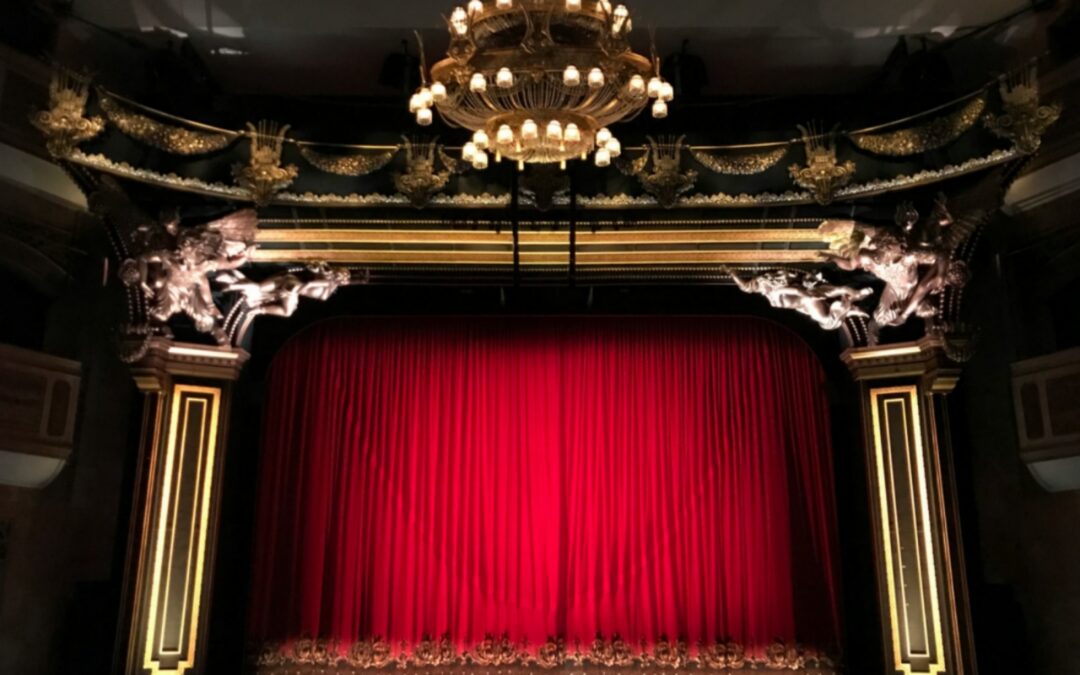I can’t believe that I’m writing this. Honestly, I can’t believe I’m even thinking this. I’m an open-minded person, but I truly never thought that anything would ever change my mind on this topic. And yet, I must confess that I’ve come to the conclusion that…
(deep breath)
Innovation Theater is important.
(Sorry, needed a minute to recover. It’s one thing to think something. It’s another to see it in writing.)
Why We All Hate(d) Innovation Theater.
The term “Innovation Theater” was coined by Steve Blank in a 2019 HBR article to describe innovation activities like hackathons, shark tanks, and workshops that “shape and build culture, but they don’t win wars, and they rarely deliver shippable/deployable product.”
The name stuck because it gave the Innovation Industrial Complex a perfect scapegoat. Innovation efforts weren’t producing results because companies were turning real strategy into theater—events that could be delegated and scheduled instead of the courage, commitment, and willingness to change that actual innovation requires.
And in many cases, this criticism was warranted.
But in our rush to dismiss Innovation Theater, we missed something important.
What I (Almost) Missed.
Recently, I visited a company’s Innovation Center, curious to see what ten years of innovation investments and two floors in a downtown high-rise had produced.
The answer was a framework to think more deeply about equity and inclusion. My immediate reaction was rage. A decade of investments for this? Millions of dollars spent on the very definition of Innovation Theater? And they’re bragging about it?!?
Once the rage subsided, something remained. Something that I couldn’t shake. An inkling that I had missed something. That inkling became the realization that I was wrong.
Over the past five years, the framework had been used in carefully curated workshops to help teams across the organization see things they had previously overlooked, understand topics that were sensitive or taboo, and envision solutions that no one their heavily regulated industry had even considered.
Not every workshop resulted in action. But over time, something shifted.
Seasons. Not Shows.
Repetition created a shared language. Multiple touchpoints built permission. Small success stories accumulated to make risk feel manageable. The workshops didn’t send off isolated sparks of innovation. They built the conditions were acting on new ideas became progressively safer and more normal.
And after several seasons, enduring value was created. The company now enjoys the highest retention rate of customers in its industry and has attracted more new customers than all its competitors combined. A decade of “Innovation Theater” delivered exactly what innovation is supposed to deliver: measurable competitive advantage and revenue growth.
Don’t Cancel Your Next Innovation Event.
The problem isn’t Innovation Theater itself. It’s how we practice it.
A one-off hackathon? Theater. An annual workshop? Theater. But sustained investment over years, touching dozens of teams, building shared language and accumulated proof points? That’s a strategic bet on transformation that creates lasting competitive advantage.
The question isn’t whether Innovation Theater works. It’s whether you’re willing to commit to the season, not just the show. Are you prepared to invest consistently, measure differently, and wait for compounding effects that won’t show up in next quarter’s results?
Because when you commit to the season, not just the show, it’s the most strategic bet you can make.

+1 to Ellen Di Resta’s point.
Agree that one-off events can be theatre, especially when mandated, sanctioned from above and loaded with consultants. But, bottom-up employee activated hackathons to explore emerging tech or some other trend washing across the enterprise, can be quite impactful. Most companies don’t encourage such organic innovation or trust line-level teams to do such things in an ungoverned way.
I have led my share of innovation’esque events which netted very little business value for who hired me…, yet… the folks who were participants (captives, hostages?) of my sessions, don’t regret them. Some of those folks went on to leave the innovation-anemic environments they were inhabiting and either found their own company or find a more innovation-friendly company to work with.
So, maybe when we do inadvertently inflict innovation theatre, some folks re-write the script and make their own play,
MIT Tech Review just published a sort of lefty or progressive perspective on what went wrong with ‘design thinking. The author’s chronology is accurate and many of the limits she describes are real. She never uses the term “innovation theatre” though, and puts the seat of blame at capitalism itself. Bit of a stretch for me, but I see her point – in the social entrepreneurial projects design thinking tried to ‘reimagine’, the outputs fell far short of meeting the intended community stakeholders’ needs.
Isn’t that called “virtue signaling”?
https://designthinkingink.wordpress.com/2025/11/19/design-thinking-was-supposed-to-fix-the-world-where-did-it-go-wrong/
OK, Robyn – you really had me on this one. And I’ll still die on my sword that Innovation Theater as a way to create value by developing better products is not the way to go. Maybe we should make a distinction here between Innovation Theater as we intended it (which means, “let’s play innovation but it’s safe because we won’t do anything differently.”), and Innovation Culture change, as part of a larger culture shift. I believe that culture change does take a long time to have lasting value, and true innovation cannot thrive in a culture that is toxic to its very existence. I think you summed it up in your sentences “It’s whether you’re willing to commit to the season, not just the show. Are you prepared to invest consistently, measure differently, and wait for compounding effects that won’t show up in next quarter’s results?”